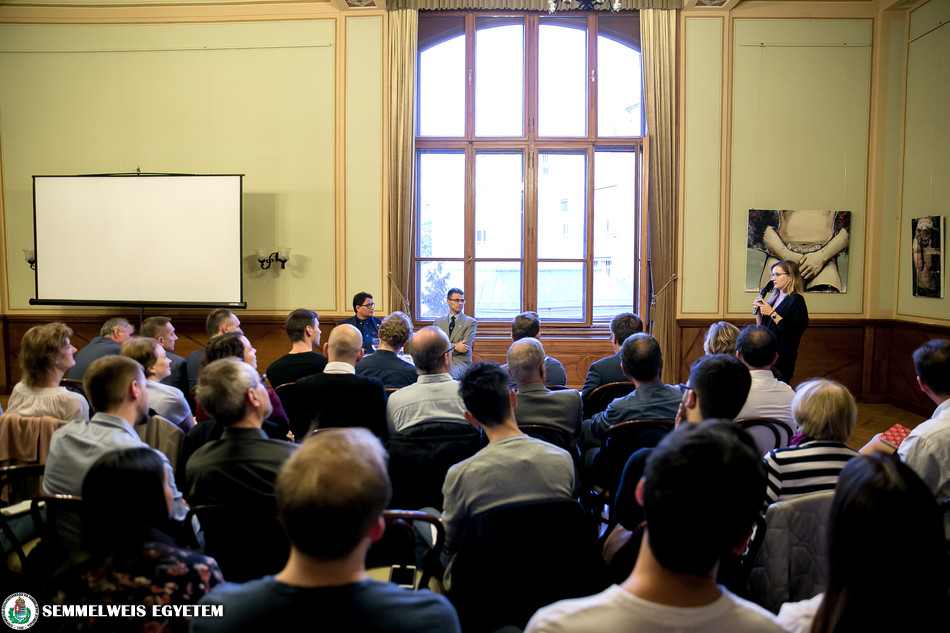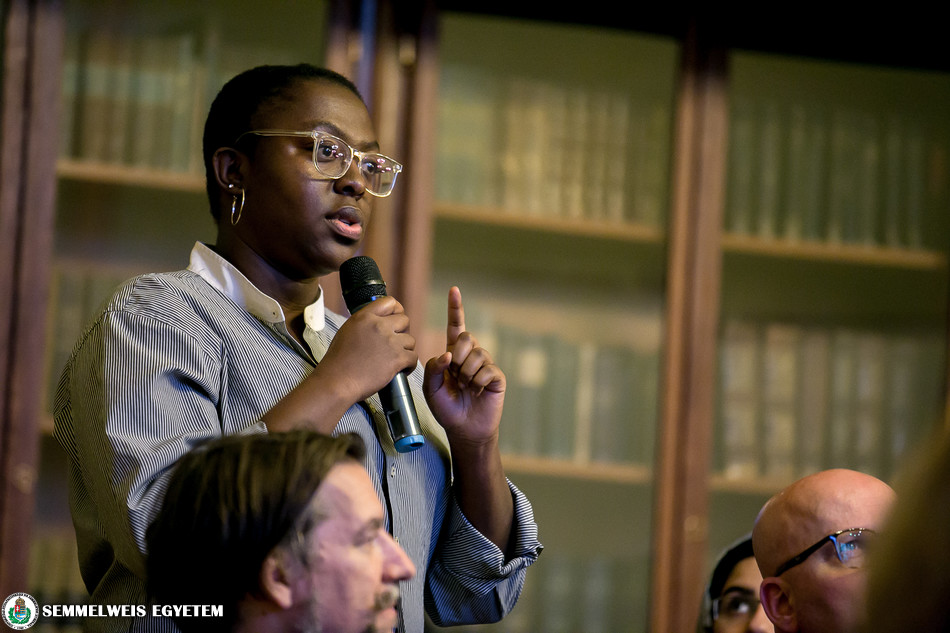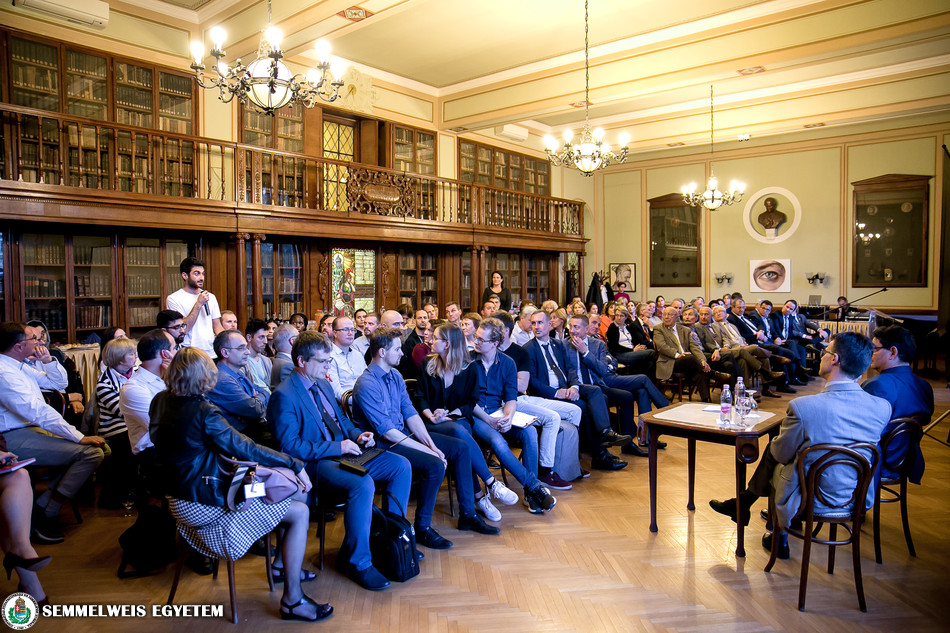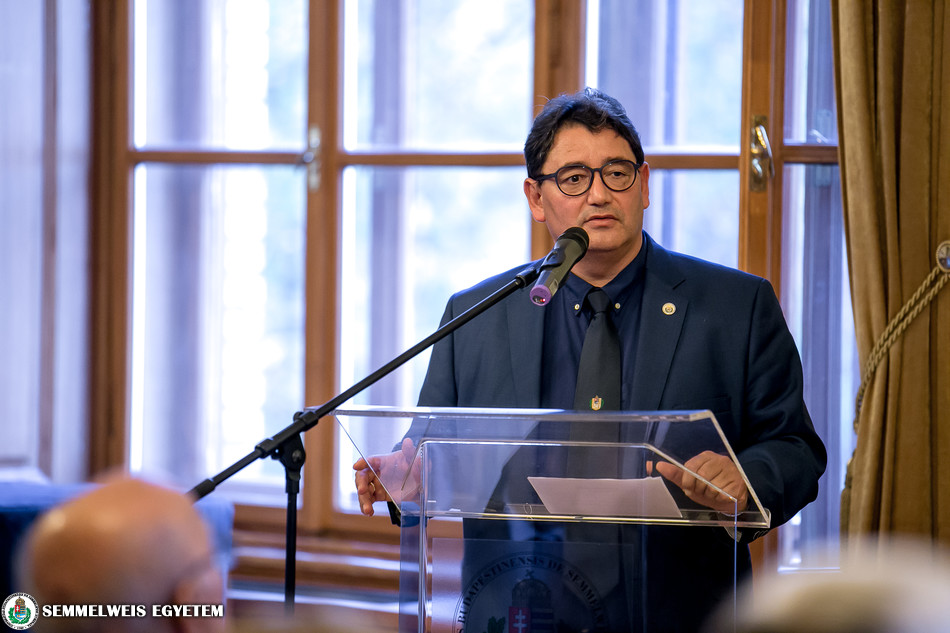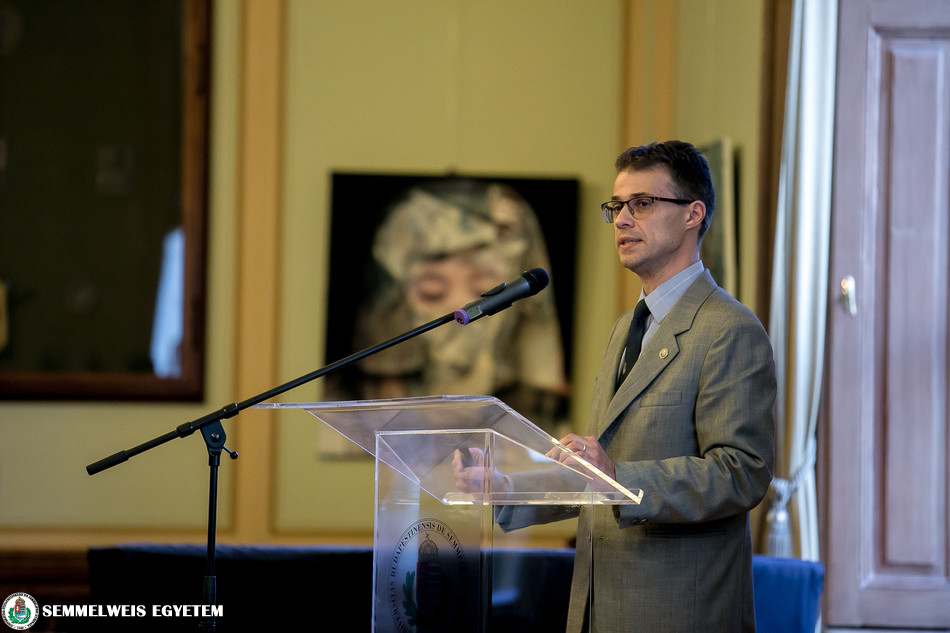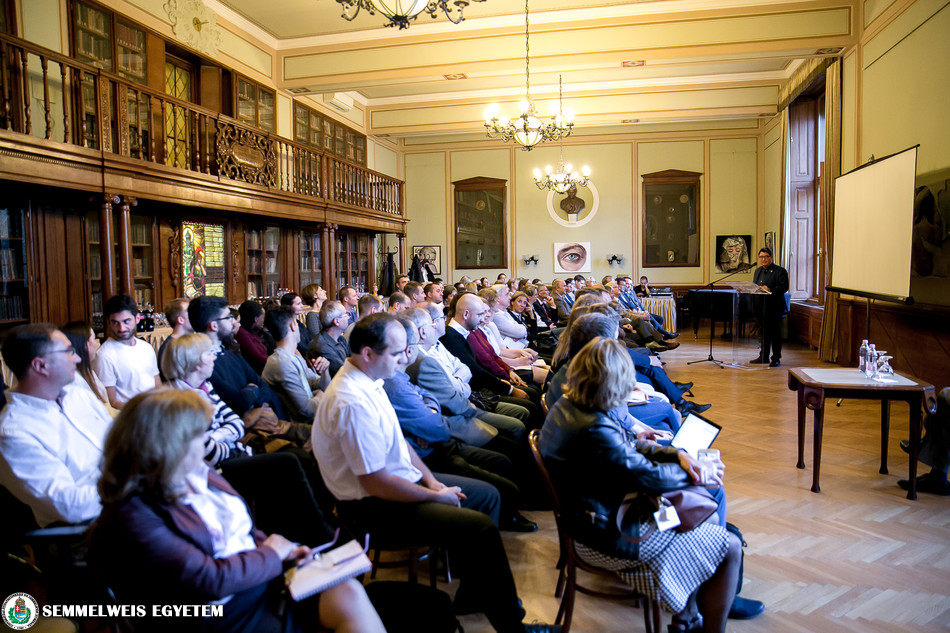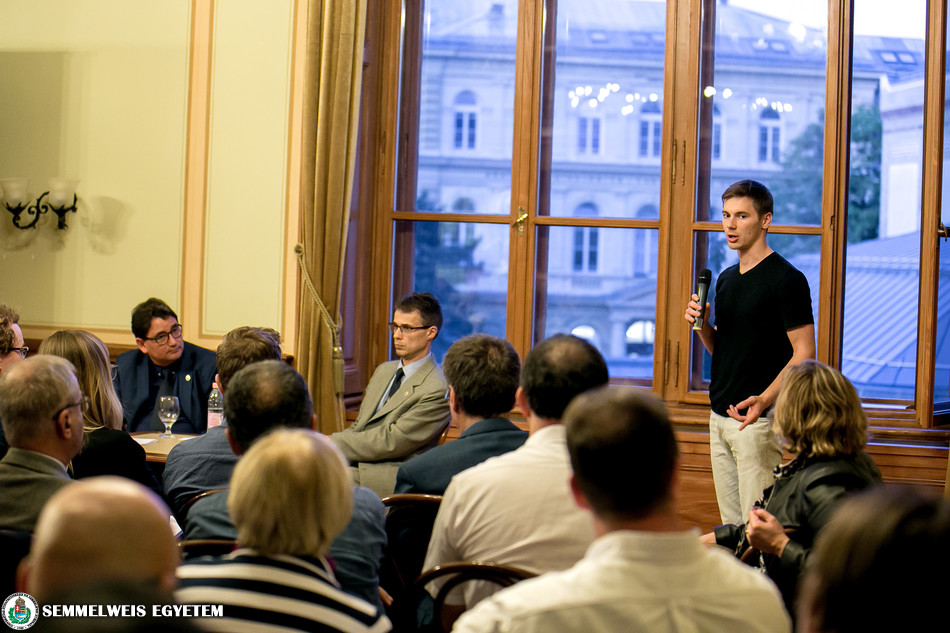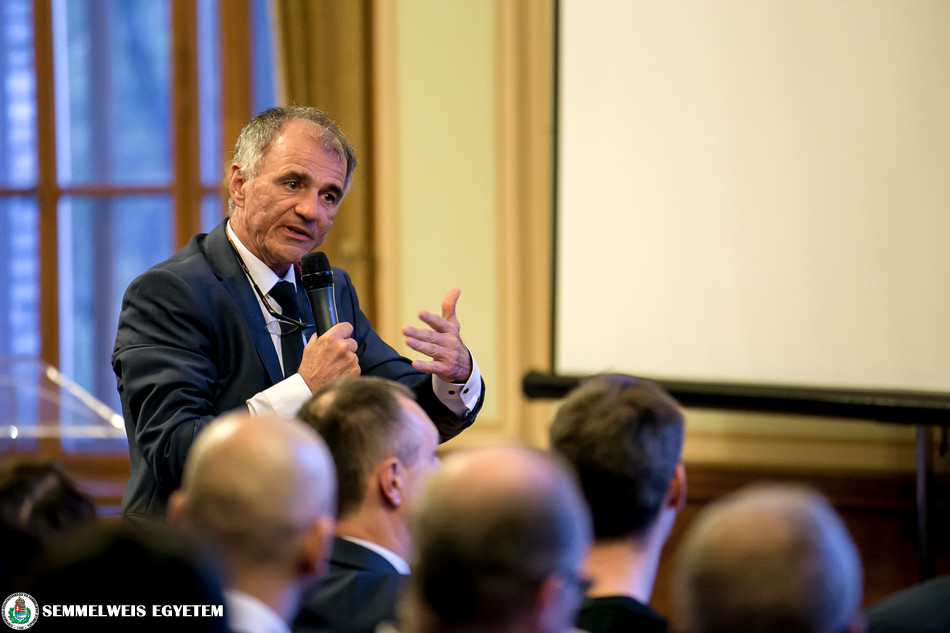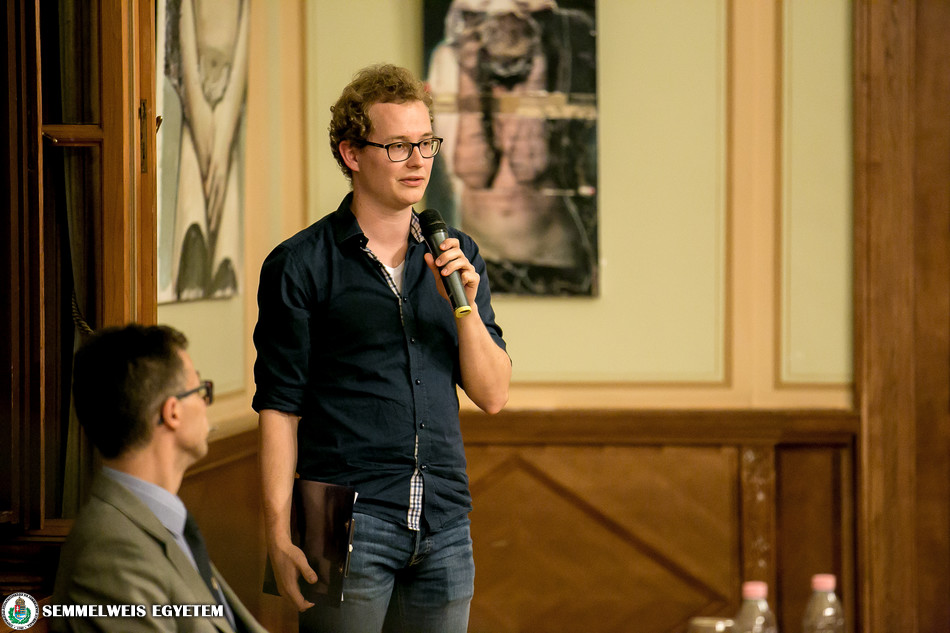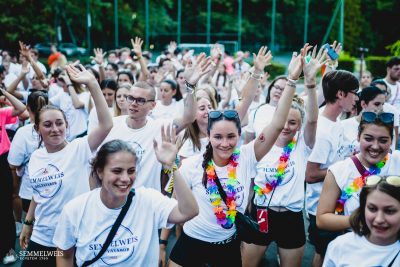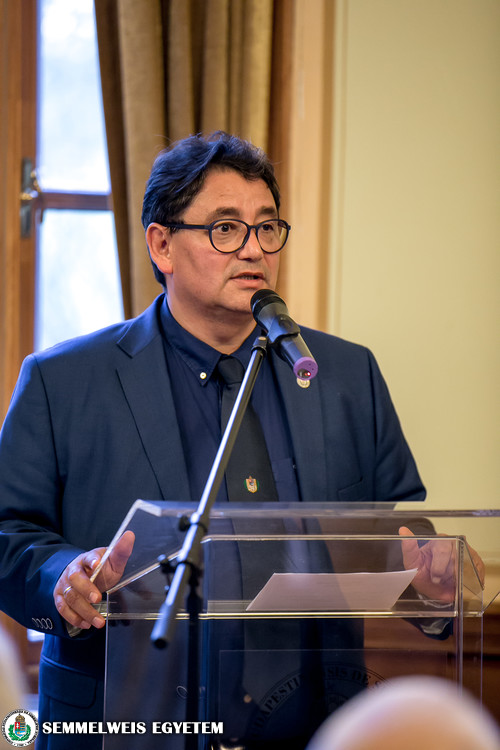 “We want to become more international and are looking for good solutions to build a closer relationship to the international students at Semmelweis University, for which we need your feedback want to know your opinion, how we can be even better,” said rector Dr. Béla Merkely is his brief opening statement at a forum before university leaders, lecturers and students on the occasion of a new organizational unit, the Center of Education of International Studies (CEIS) introducing itself.
“We want to become more international and are looking for good solutions to build a closer relationship to the international students at Semmelweis University, for which we need your feedback want to know your opinion, how we can be even better,” said rector Dr. Béla Merkely is his brief opening statement at a forum before university leaders, lecturers and students on the occasion of a new organizational unit, the Center of Education of International Studies (CEIS) introducing itself.
As the head of the CEIS, Dr. Alán Alpár, acting vice-rector for international studies, pointed out that one-third of Semmelweis University’s students study in a foreign language through the English and German-language programs, representing more than 60 countries. The CEIS is replacing the previous Foreign Students’ Secretariat and will take on all special tasks relating to the education of international students. In addition to the earlier activities, which mostly included admissions and the administration of studies, a major priority of the new unit will be the stronger incorporation of international students into everyday and scientific life at Semmelweis University with new programs and lectures, as well as building an international alumni program, said the vice-rector.
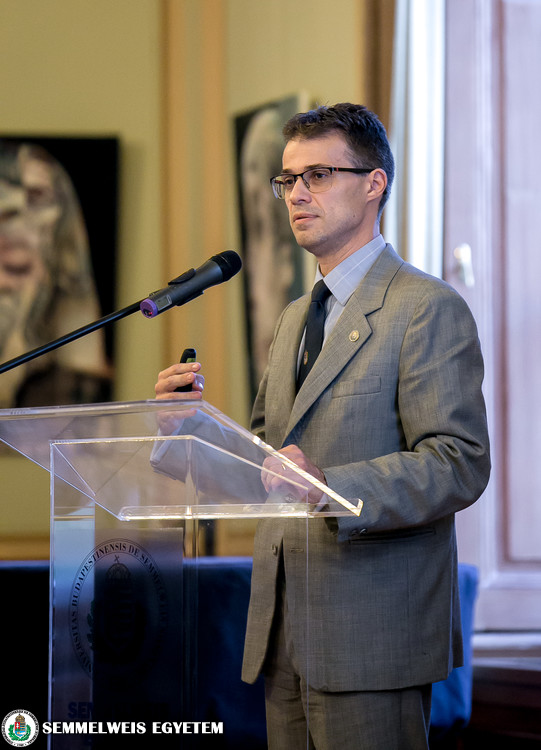 He pointed out that currently there is hardly any connection between students in the English, German and Hungarian-language programs, and that they wish to make significant improvements in this area. He announced that in line with this goal, a new English-language mixed course will be launched in February for all students, covering general topics related to scientific knowledge that are not included in the undergraduate programs. This course, which is planned to include seven or eight lectures, will cover issues such as writing scientific articles, networking, general skills, as well as international communication and marketing, and will be available through the Neptun system, providing credits. Among other possible areas where Hungarian and international students can mix, he mentioned joint sports and cultural events.
He pointed out that currently there is hardly any connection between students in the English, German and Hungarian-language programs, and that they wish to make significant improvements in this area. He announced that in line with this goal, a new English-language mixed course will be launched in February for all students, covering general topics related to scientific knowledge that are not included in the undergraduate programs. This course, which is planned to include seven or eight lectures, will cover issues such as writing scientific articles, networking, general skills, as well as international communication and marketing, and will be available through the Neptun system, providing credits. Among other possible areas where Hungarian and international students can mix, he mentioned joint sports and cultural events.
With regard to the new organizational structure, Dr. Alpár pointed out that the Directorate of International Studies will operate under the CEIS, roughly continuing the function of the previous Foreign Students’ Secretariat, that is, running the English and German-language programs at the faculties of medicine, dentistry and pharmacy. In addition, starting from this year, the foreign language programs offered by the Faculty of Health Sciences (ETK) will also be under the direct control of the CEIS. “We can improve our strategy for enrollment for example by steering international applicants that were not accepted to the Faculty of Medicine toward the programs offered by the ETK, thus making better use of our resources,” Dr. Alpár noted.
He made special mention of the Asklepios Campus Hamburg (ACH), one of the off-campus programs of Semmelweis University, where training is conducted in German according to the Semmelweis curriculum. He noted there is great untapped potential for collaboration at ACH, therefore stronger contact will be built with the institution, including as a first step the recently launched series of lectures to be held there in this special 250th anniversary year of the university.
The vice-rector presented the system of international admissions at Semmelweis University, pointing out the Semaphor online system, which assures a transparent and fair admission process for everyone. Citing the latest figures for this year for the Faculty of Medicine, he said the number of international applications was three- to fourfold over the number of available spots, with 2134 students currently enrolled in foreign language programs, up 15% from last year: within this, 1240 students (+12%) are in the English program and 894 (+20%) in the German program. The most number of students are currently from South Korea, Israel, Iran, Norway, Japan and Germany.
Relating to the work of the CEIS, Dr. Alpár also said that they plan to keep in close contact with everyone, including the faculties, other units, the S.M.S. Kft, which manages the recruitment of international students abroad, as well as with the university’s IT, international relations and communications departments. They plan to take steps to strengthen the language training program for university staff, especially in German – a refresher course has already been announced to great success, with more than 100 people signing up. IT developments will focus on increased transparency and making information more easily available, while the university’s German-language central website has already been launched. The CEIS also has plans regarding an international alumni program, but the details have not been worked out yet here, including whether alumni meetings should be organized in Hungary in the home countries of Semmelweis graduates.
Dr. Alán Alpár and rector Dr. Béla Merkely both emphasized that they are open to and await feedback and thought, proposals from international students, in which they expect the cooperation of the Students’ Union as well as DSVS and ISSA, the students associations for German and English-language students. Representatives of these groups were also present at the forum, where they voiced several requests, most of which concerned improving foreign language communication and the operation of the Neptun system, while also proposing that joint lectures and practices be held with Hungarian students. They also expressed a need for more information about the Students’ Scientific Circle (TDK) and other scientific research opportunities. The rector vowed that he will endeavor to find a solution to every proposal and request as soon as possible, both now and in the future.
Tamás Deme
Photo: Attila Kovács – Semmelweis University
